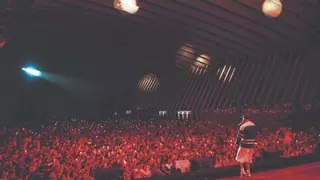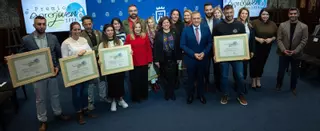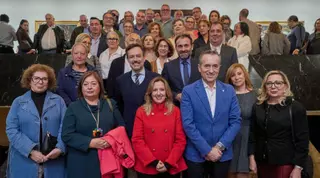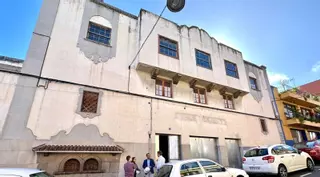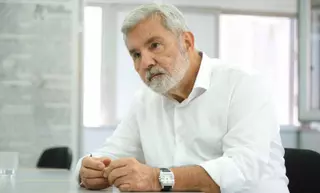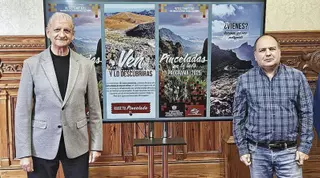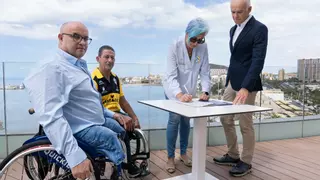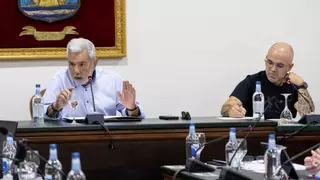Adeje
Sustainability, aim of the largest budget in history
Enhancing essential services and supporting the most vulnerable are additional priorities for this year’s accounts
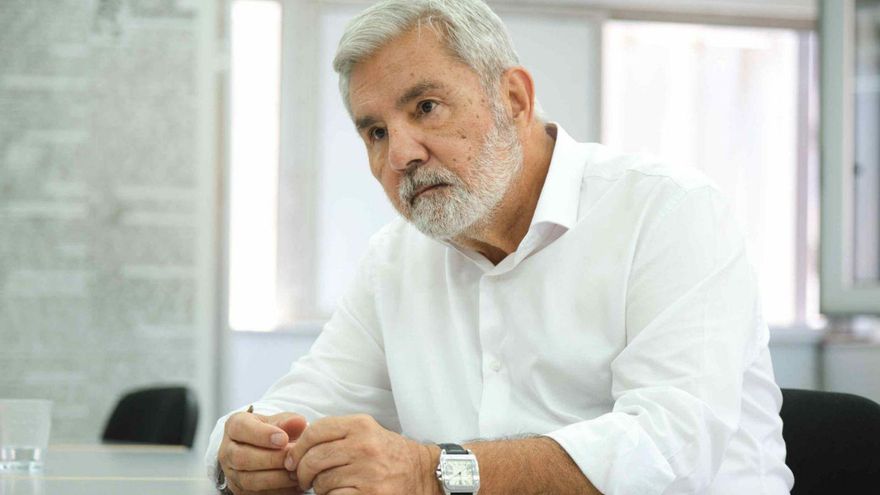
José Miguel Rodríguez Fraga, mayor of Adeje. / CWL

The day
Adeje JAN 3125 6:00
Key public services, addressing the needs of individuals, and sustainability are the key goals of this year’s budget from the Adeje government, which is the largest in its history. The socialist team led by Mayor José Miguel Rodríguez Fraga has presented a budget for 2025 that signifies a 7% increase over the previous year, totalling 122 million euros.
The budget, which will be debated and voted on during today’s municipal plenary session, embodies a “strong commitment” to housing accessibility. As stated by the mayor, these accounts represent a management approach that “prioritises the welfare of citizens and the balanced growth of the municipality.”
Included in the budget is a “significant” allocation for the enhancement of street cleaning and waste collection, with a new contract valued at 14 million euros. This funding will extend the service to seven days a week in high-demand areas, improve cleaning efforts in urban gullies, manage algae treatment on beaches, and enhance the maintenance of public facilities. Furthermore, resources will be dedicated to modernising the water and sanitation supply systems, ensuring, as Rodríguez Fraga states, “their effectiveness and sustainability.”
Focus on People
Another crucial focus is the care of individuals, particularly those in vulnerable situations. The budget sheets allocated for elderly housing, children’s education, and social welfare programmes will see increases, particularly in home assistance and support services.
In the educational sector, funding is earmarked for grants and school assistance, alongside an increase in places available for early childhood education for children aged 0 to 3, aimed at facilitating family reconciliation. The cultural offering will also be enhanced with the establishment of the School of Music and the Auditorium, as well as the promotion of sports activities that advocate healthy lifestyles and opportunities for youth.
Housing access emerges as one of the significant challenges addressed by this budget. Rodríguez Fraga emphasised that Adeje “has a robust history in implementing policies that encourage the development of affordable housing.” “The City Council does not directly construct because it lacks the authority, but it works diligently to establish the required conditions, such as land acquisition and urban planning, that enable other administrations and developers to create homes for the local population,” he detailed.
Reducing Carbon Emission
The “commitment to sustainability” is further emphasised, according to the mayor, with initiatives aimed at lowering the carbon footprint and promoting a circular economy through recycling and material recovery. As part of this strategy, an expansion of electric vehicle usage within municipal services and a commitment to local energy communities are anticipated. “We aim to establish a more sustainable and inclusive municipal model, making progress in environmental policies that secure Adeje’s future,” declares Rodríguez Fraga.
The finance councillor, Epifanio Díaz, underscores the “financial resilience” of the City Council, remarking that Adeje’s finances are “healthy and meet all economic criteria dictated by higher authorities.” “The City Council maintains stringent oversight over debt repayment and supplier payments, significantly under the levels stipulated by regulatory requirements. This financial stability empowers us to plan and carry out investments without jeopardising the economic well-being of the municipality,” asserts Díaz.
